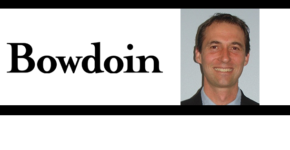 How do you rate your own performance relative to your peers?
How do you rate your own performance relative to your peers?
Eric Gaze, senior lecturer in mathematics at Bowdoin College, says you may be right or you may be wrong.
Eric Gaze directs the Quantitative Reasoning (QR) program in the Baldwin Center for Learning and Teaching (BCLT) at Bowdoin College and is a Senior Lecturer in the Mathematics Department. He is the past President of the National Numeracy Network (NNN 2013 – 2019) and past chair of the BCLT (2015-2019). Eric gives talks and leads workshops on QR course development and assessment. He is the author of a QR textbook published with Pearson, Thinking Quantitatively: Communicating with Numbers 3rd edition (2023), and was the Principal Investigator for an NSF TUES Type I grant (2012-14), Quantitative Literacy and Reasoning Assessment (QLRA) DUE 1140562. Prior to coming to Bowdoin, Eric led the development of a Masters in Numeracy program for K-12 teachers at Alfred University as an Associate Professor of Mathematics and Education.
Debunking the Dunning-Kruger Effect
John Cleese once summed up the idea of the Dunning–Kruger effect as “If you are really really stupid, then it’s impossible for you to know you are really really stupid.” A quick search of the news brings up dozens of recent headlines connecting the Dunning–Kruger effect to everything from work to empathy and even to why Donald Trump was elected president.
My colleagues and I suggest that the mathematical approach used to show this effect may be incorrect. It arises when you ask people to estimate their performance relative to everyone else.
This type of self-assessment requires people to make guesses about how others performed and is subject to the fallacy that most people consider themselves better than average.
Research shows that 93% of Americans think they are better drivers than 50% of everyone else, which is mathematically impossible.
Establishing that the least skilled can adequately self-assess required a different approach. My colleague, Ed Nuhfer and his team gave students a 25-question scientific literacy test. After answering each question, the students would rate their own performance on each question as either: nailed it, not sure or no idea.
It turns out that all students self-assess passably well. Students underestimate their scores as frequently as they overestimate them, and only a small percentage (about 5%) proved so egregious in their overestimates to meet the “unskilled and unaware” stereotype.
The original paper starts with the quote: “It is one of the essential features of incompetence that the person so inflicted is incapable of knowing that they are incompetent.” This idea has spread far and wide through both scientific literature and pop-culture alike. But the reality is that very few people fall into this category.
Most people have an innate ability to gauge their competence and intelligence. To claim otherwise is to consign half of the population into a hopelessly lost category. And this is just not true.
Read More:
- Gaze, Eric (2023) Thinking Quantitatively: Communicating with Numbers 3rd edition, New edition Textbook e-course, Pearson Publishing: Boston, MA. January 2023
- Gaze, Eric (2015 – ) “Thinking Quantitatively Blog”
Available at: https://thinkingquantitatively.wordpress.com/

Comments
One response to “Eric Gaze, Bowdoin College – Debunking the Dunning-Kruger Effect”
What about the reverse? Did the study show the percentage of people who underestimated their competence, e.g..the fraud syndrome?